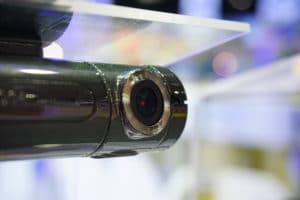If a dash cam was used, you have a legal right to view the footage.
In California, some — but not all — law enforcement vehicles are equipped with dash cameras, or what are commonly referred to as “dash cams.” The technical name for this equipment is Mobile Video/Audio Recording Systems, or MVARS. These devices can be used to record arrests, driving patterns of motorists suspected of driving under the influence, conversations between law enforcement officers and suspects, field sobriety tests and many other events.
According to a criminal defense lawyer Santa Ana, CA, footage from dash cams are admissible in court. That can be great news in some cases, particularly if the video proves that the police officer was not being truthful about the circumstances of your arrest, for example, or that you passed your field sobriety test with flying colors. But in some cases, having the dash cam footage entered into evidence can hurt your case. Importantly, if a dash cam was used, your criminal defense lawyer Santa Ana, CA has the right to view footage from the recording.
So when are dash cams used? They are not currently mandatory in California, so not every police department uses them. However, if a police car has a MVARS installed, then it starts recording as soon as an officer turns on the vehicle’s emergency lights. A police officer cannot turn off a dash cam. The MVARS is always facing forward and is always turned on — without exception. According to a criminal defense lawyer Santa Ana, CA, these devices can help to make law enforcement officers more accountable by recording conversations and events that take place leading up to arrests. They can also provide crucial evidence, such as by recording field sobriety tests or motorists’ driving patterns or even statements made by a suspect prior to his or her arrest.
Like any other piece of technology, dash cams have their benefits and drawbacks for defendants in California criminal cases. There are situations where they can be incredibly helpful. For example, consider a case where the police ask a driver for permission to search his car. The driver refuses, but the police coerce him into getting out of the car and letting them search it anyways, revealing illegal narcotics. Without the dash cam footage, it would be the driver’s word against the police officer’s. But with the footage, his criminal defense lawyer Santa Ana, CA could argue that his “consent” was not voluntary, and that any results of the search should be suppressed. This could lead to the criminal charges against him being dismissed.
Of course, in some cases, dash cam footage could hurt a defendant’s case. In the example above, the recording could show the defendant giving consent to the search — and even that he was driving erratically, giving the officers cause to pull him over in the first place. Because dash cam footage is admissible in court, defendants in criminal cases should expect that prosecutors will seek to have it entered into evidence if it is harmful to their cases.
At the Chambers Law Firm, our skilled team of criminal defense lawyers work with clients to help them achieve the best possible results. Contact us today at 714-760-4088 or dchambers@clfca.com to schedule a free initial consultation with a criminal defense lawyer Santa Ana, CA.





